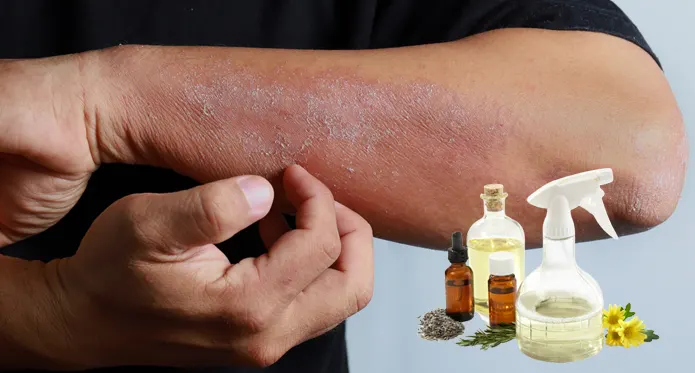Last Updated on March 8, 2023
There is no doubt that air fresheners can keep your home smelling fresh and appealing, but some commercial air fresheners contain harmful chemicals that could harm your health. Using essential oils as air fresheners is a safer and more natural way to fragrance your home.
Air fresheners and essential oils are widely used in households. A combination of these scents is often used to enhance the ambiance of homes and offices and can be found in various scents. But sometimes, these products can also cause allergic reactions in some individuals.
Many air fresheners and essential oils contain allergens that can cause hay fever-like symptoms, such as sneezing, watery eyes, and a runny nose. Occasionally, these allergies can also cause asthma attacks.
Read on to understand the air freshener and essential oil allergy symptoms and how to use essential oils with air fresheners safely.
What are Air Freshener and Essential Oil Allergy Symptoms?

Many people enjoy the smell of air fresheners and essential oils, but these fragrances can cause allergic reactions in some people. Symptoms of an air freshener or essential oil allergy include:
Difficulty Breathing: A common symptom of air freshener allergies is difficulty breathing. This can occur because the chemicals in these products can irritate the lungs and make it difficult to draw a deep breath.
Wheezing: Another typical essential oil and air freshener allergy symptom is wheezing. Wheezing is a whistling sound that occurs when you breathe and can signify that your airways are constricted. If you have asthma, you may be more likely to experience wheezing when exposed to air fresheners and essential oils.
Coughing: Coughing is a typical symptom of air freshener or essential oil allergies. This is because the fragrances in these products can inflame the lining of the throat, leading to a cough.
Sneezing: Sneezing can be caused by inhaling the fragrance of essential oil or coming into contact with the oil on the skin. In some cases, sneezing may accompany other symptoms such as a runny nose, watery eyes, or itching.
Anaphylaxis: Anaphylaxis is a potentially life-threatening reaction that can cause swelling of the throat and difficulty breathing. Symptoms of anaphylaxis include throat and tongue swelling, difficulty breathing, dizziness, and confusion.
Rash: When using an air freshener with essential oils, the inflammation can range from mild to severe. In severe cases, the rash may spread across the body and lead to blistering.
These are typical allergy symptoms associated with air fresheners and essential oils. Symptoms such as these can occur after using a product with essential oils, discontinue use immediately and seek medical help if necessary.
How Do I Know if I’m Allergic to Essential Oil Air Fresheners?
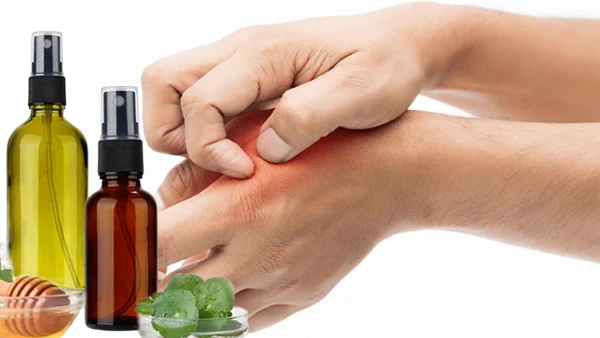
Some people may be allergic to essential oil air fresheners without knowing it. Stop using the air freshener immediately when you start experiencing any of those symptoms described above.
These allergic reactions can be severe and even life-threatening, so you need to get medical help as soon as possible. There are also several ways to test for allergies to essential oils. Skin prick tests and blood tests are the most common methods.
A skin prick test involves placing a drop of essential oil on your skin and then pricking the area with a needle. If you’re allergic, you’ll usually develop a red, itchy rash within 15 minutes.
A blood test can also be used for allergies to essential oils. This type of test requires a small sample of blood, which is then checked for the presence of antibodies to the essential oil in question.
Can Essential Oils Trigger Allergies?
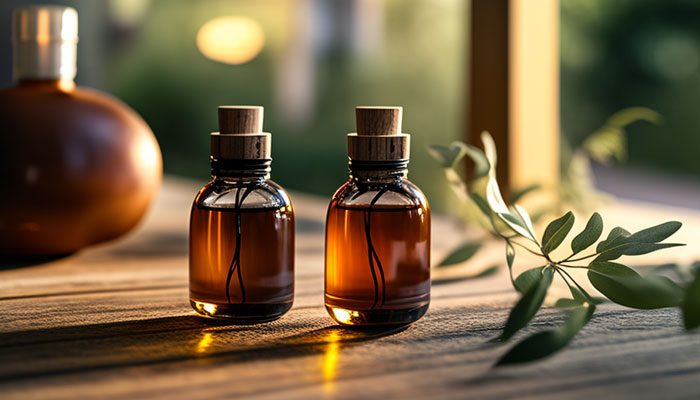
Essential oils are concentrated liquids extracted from plants and commonly used for aromatherapy. While essential oils can provide many benefits, they are also capable of causing allergic reactions. People with fragrance-sensitive skin or pollen allergies are especially susceptible to reactions.
Common allergic symptoms include skin rashes, itchy and runny nose, and difficulty breathing. In severe cases, anaphylactic shock may occur. If you experience allergy symptoms after using essential oils, seek medical help immediately.
To avoid these reactions, always dilute essential oils before using them, and test them on a small area of skin before applying them over a large area. With a little care, you can enjoy the benefits of essential oils without triggering an allergy.
Can You Have an Allergic Reaction to Essential Oils Air Fresheners?
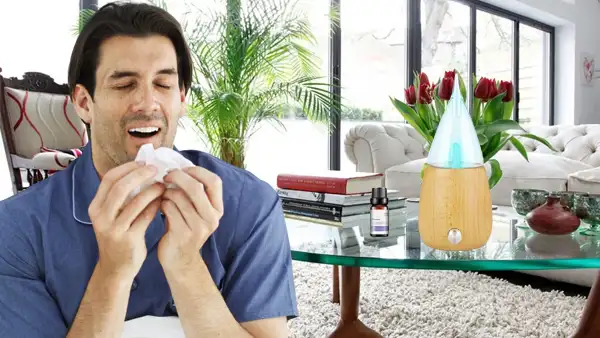
While essential oils and air fresheners are generally safe for most people, there is a small chance that you could experience an allergic reaction. The most prominent symptoms of an allergic reaction include skin irritation, redness, and itching.
If you experience any of these symptoms after using an essential oil air freshener, stop using it without delay and consult a doctor if necessary. In rare cases, more severe reactions such as difficulty breathing or swelling of the throat can occur.
It’s generally safe to use essential oils and air fresheners, but allergy concerns should be kept in mind. Sometimes, MDD (Major Depressive Disorder) allergies can be managed with over-the-counter medications. Regardless, more severe allergies may require prescription medication or avoidance of the allergen altogether.
Can Essential Oil Air Fresheners Make You Sick?
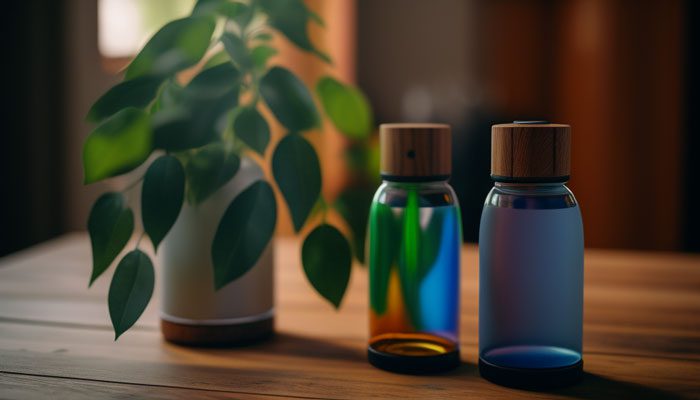
Many essential oil air fresheners contain chemicals that can be harmful if inhaled, especially in small amounts. Some air fresheners contain phthalates, which have been linked to reproductive issues and endocrine disruption. A few of the chemicals in air fresheners may also be cancer-causing.
Thus, it is essential to know the potential risks before using any air freshener. If you are concerned about your health, you may consider using natural alternatives such as essential oils with an essential oil diffuser.
Can You be Allergic to Smelling Essential Oils in a Diffuser?
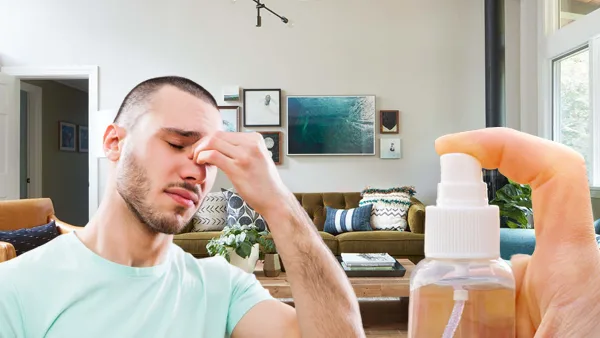
Essential oils are becoming increasingly popular as a way to improve the smell of a room, but there is some debate about whether or not they can cause allergies. Essential oils are made from various natural ingredients, and if you are sensitive to any of those fragrance ingredients, you may experience an allergic reaction.
The most common symptoms include sneezing and watery eyes. If you experience these symptoms after using particular essential oils, it is vital to stop using them immediately. In most cases, the symptoms will resolve independently after a few days.
Can Essential Oil Air Fresheners Trigger Allergies?
Essential oil air fresheners are becoming increasingly popular, but there is growing concern about their safety. Some studies have shown that they can trigger allergy symptoms, aggravate existing allergies and worsen asthma.
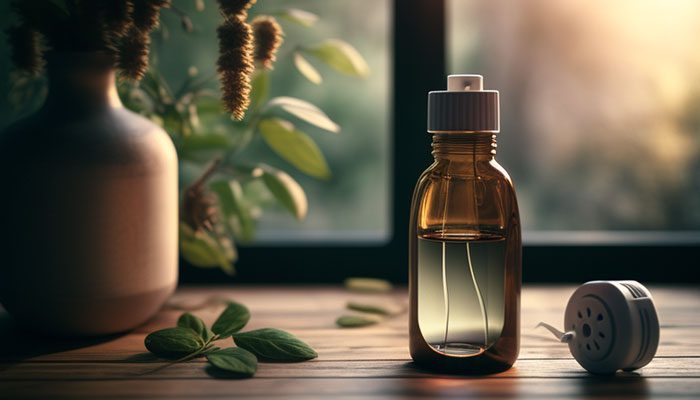
In one study, people with asthma were exposed to essential oils for 30 minutes. They found that their airways became more constricted, and they had difficulty breathing. Another study told people with allergies to essential oils for two hours. They found that their symptoms got worse, and they had more difficulty breathing.
Essential oils are also volatile and can evaporate, allowing them to be breathed in. This means they can trigger an allergic reaction even if you don’t have direct contact with them.
If you have asthma or allergies, it’s important to be cautious when using essential oil air fresheners. You may want to avoid them altogether or use them sparingly in well-ventilated areas.
Can Breathing in Essential Oils be Harmful?

Some people worry that the practice may trigger airway inflammation or asthma symptoms, but no scientific evidence supports these claims. But, the pungent odors emitted by essential oils may indeed contain volatile organic compounds or VOCs. These are chemical gasses that can worsen air quality and irritate the lungs.
Inhaling large amounts of VOCs can cause headaches, dizziness, and irritate the lungs. For this reason, it is important to use essential oils sparingly and to avoid using them in enclosed spaces. With proper precautions, there is no need to fear breathing in the occasional whiff of eucalyptus or lavender.
What is the Safest Way to Use Essential Oils as Air Fresheners?
Essential oils are concentrated plant extracts that retain the natural aroma and flavor of the plant. They are widely used in perfumes, cosmetics, and flavorings and have numerous benefits for health and well-being.
When used in aromatherapy, essential oils can help to improve mental clarity and focus, relieve stress and anxiety, and boost energy levels. When applied topically, they can help to soothe muscle pain, reduce inflammation, and improve skin health. With a diffuser, essential oils can be safely used as air fresheners.
Essential oil diffusers work by dispersing the essential oils into the air, where they can be breathed in. This evenly distributes the oil molecules into the air without risking overdose and worrying about them coming into contact with your skin.
You can make your air freshening spray by adding eight drops of three essential oils to one & half to one cup of water. This can be misted around your house as needed. It is best to avoid spraying directly onto surfaces as this may damage them due to the spray.
With so many uses, it’s no wonder that essential oils have become a preferred alternative for those looking for more natural solutions for health and wellbeing.

